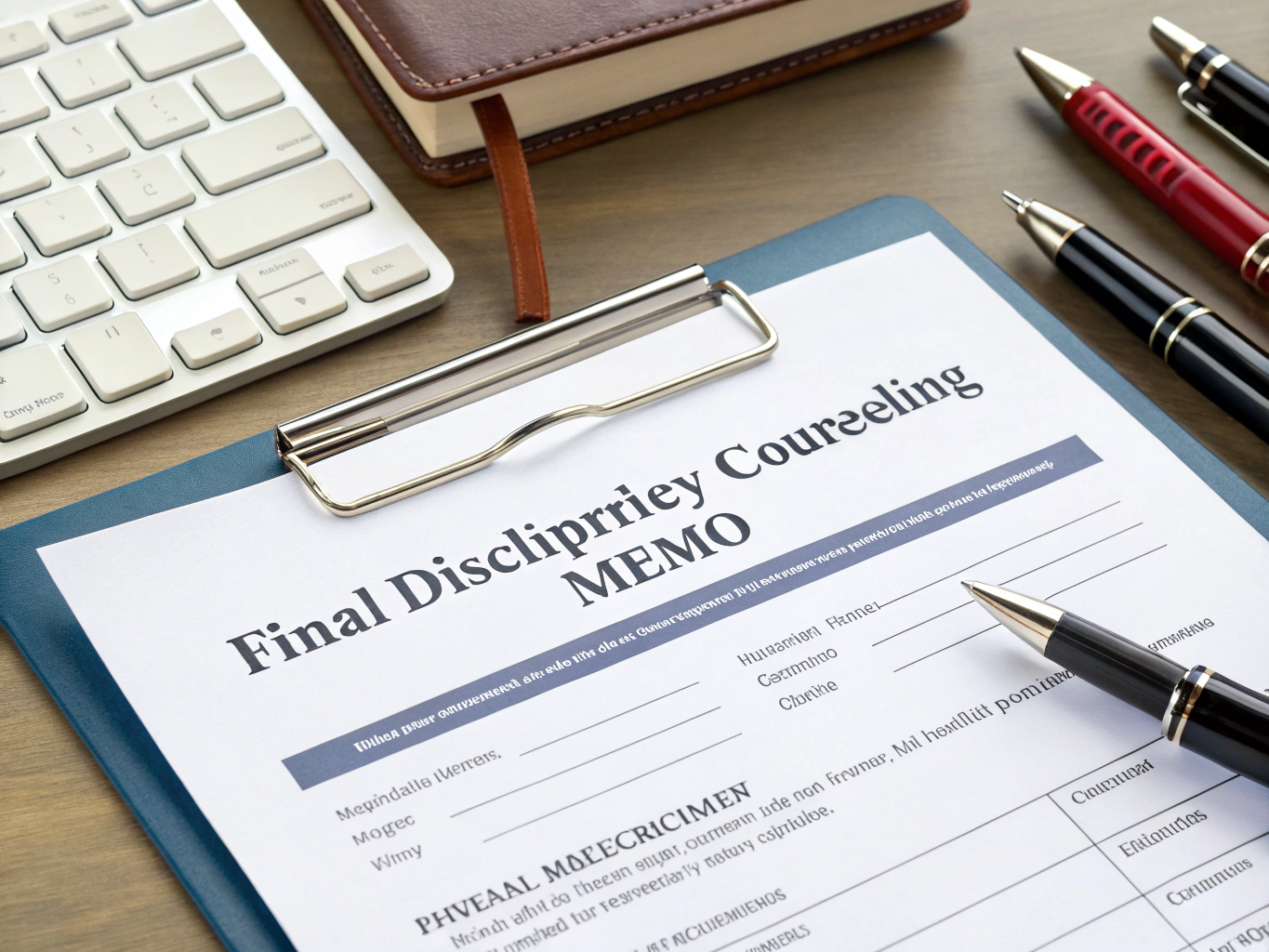What is a Final Disciplinary Counseling Memo?
A Final Disciplinary Counseling Memo is a formal document used by HR professionals and managers to address serious performance or conduct issues with an employee. It serves as a critical step in the disciplinary process, providing a clear account of the problems identified, the expectations moving forward, and the potential consequences of non-compliance. This memo is typically utilized after prior warnings have been issued, signaling that this is a last opportunity for the employee to rectify their behavior or performance before more severe actions may be taken.
Template
Below is a template you can customize for your organization’s needs:
Purpose and Benefits
The purpose of using a Final Disciplinary Counseling Memo is to provide a structured and transparent approach to addressing employee performance or conduct issues. This document not only serves as a formal record but also offers the employee a clear understanding of what is expected of them moving forward. Here are some key benefits:
- Clarity of Expectations: Clearly outlines what the employee needs to improve upon, reducing ambiguity.
- Documentation: Provides a formal record of the disciplinary process, which may be important for legal compliance.
- Supportive Framework: Encourages employee growth by detailing available resources and support from the organization.
- Opportunity for Redemption: Offers the employee a final chance to correct their behavior, promoting accountability.
Essential Components
Your Final Disciplinary Counseling Memo should include the following essential components to ensure clarity and effectiveness:
- Introduction: Clearly states the purpose of the memo and the context of previous discussions.
- Description of Issues: Details specific incidents and prior warnings, ensuring the employee understands the gravity of the situation.
- Company Policy Reference: Cites relevant policies that were violated to reinforce the legitimacy of the counseling.
- Expectations for Improvement: Lists clear, measurable actions the employee must take to demonstrate improvement.
- Consequences of Non-Compliance: Outlines the potential repercussions if the employee does not meet the expectations set forth.
- Support and Resources: Identifies available resources to assist the employee in their journey to improvement.
How to Use This Form
To implement and use the Final Disciplinary Counseling Memo effectively, follow these practical steps:
- Customize the Template: Tailor the template to reflect your company’s policies and the specific situation at hand.
- Maintain Professionalism: Ensure that the language used in the memo is professional, respectful, and clear.
- Schedule a Meeting: Arrange a private meeting with the employee to discuss the memo and ensure understanding.
- Document the Discussion: Take notes during the meeting to supplement the memo and provide additional context.
- Follow-Up: Plan for regular check-ins to review the employee’s progress towards the outlined expectations.
Legal and Compliance Considerations
When using the Final Disciplinary Counseling Memo, it is vital to adhere to relevant employment laws and internal policies. Ensure that the process is conducted fairly, without discrimination, and with respect for the employee’s dignity. Proper documentation and adherence to protocols can protect the organization from potential claims of wrongful termination or discrimination.
Best Practices
To maximize the effectiveness of your Final Disciplinary Counseling Memo, consider the following best practices:
- Be Specific: Use concrete examples when discussing issues to avoid misunderstandings.
- Be Constructive: Frame the conversation around improvement and support rather than solely focusing on the negative.
- Ensure Confidentiality: Handle all discussions and documentation with discretion to protect the employee’s privacy.
- Keep a Record: Store all memos and related documentation securely in the employee’s personnel file for future reference.




